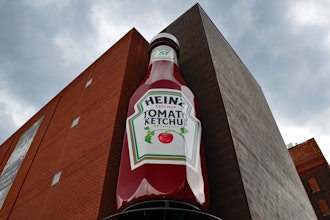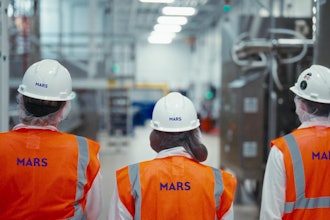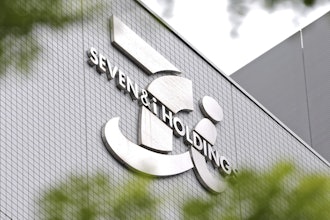
It's no secret that the market for alternative proteins — which covers everything from plant-based proteins (including dairy) to cultured or 'clean' meats to insects — has seen rapid growth in recent years, but it makes the dollars attached to its growth nonetheless staggering.
The Good Food Institute released its annual "State of the Industry" report on March 18, in which the alternative protein nonprofit innovation nonprofit stated that its research found $3.1 billion in investment in alternative protein during 2020. That's three times more than 2019, which previously set a new annual high, and 4.5 times more than 2018. GFI's data showed that of the $5.9 billion in investment raised by alternative protein companies over the past decade, more than half came in 2020.
"Over the past year, the alternative protein industry has demonstrated not only resilience but acceleration, raising significantly more investment capital in 2020 than in prior years,” said Caroline Bushnell, GFI director of corporate engagement. "These capital infusions and the funding still to come will facilitate much-needed R&D and capacity building to enable these companies to scale and reach more consumers with delicious, affordable, and accessible alternative protein products."
GFI’s analysis of alternative protein investment activity in 2020 was conducted using the PitchBook Data platform and breaks down data in the industry’s three major pillars: Plant-based meat, egg and dairy; Cultivated meat; and Fermentation.
Here's a breakdown of GFI's major data points in each pillar:
Plant-based meat, egg, and dairy
- Companies received $2.1 billion in 2020 investments — the most in any single year and more than three times the $557 million raised in 2019. GFI said companies in this pillar have raised $4.4 billion in the past decade, with almost half of it raised in just 2020. This includes Impossible Foods' $700 million funding last year, LIVEKINDLY'S $335 million; Oatly's $220 million funding and $78 million debt financing; and Califia Farms' $172 million funding.
Cultivated meat
- Companies raised more than $360 million in 2020 — six times its 2019 funding and 72 percent of the segment's total raised in its 2016-2020 tracked history. This included the first two series B raises in the segment: Memphis Meats’ $186 million round and Mosa Meat’s $75 million round (which later closed at $85 million after a further $10 million was raised in February 2021).
Fermentation
- Companies raised $590 million in 2020 — more than double of 2019. This includes Perfect Day’s $300 million Series C funding round, Nature’s Fynd’s $80 million Series B funding round, and $45 million debt round. GFI said fermentation companies have raised more than $1 billion in investments since the firm began-tracking such investments in 2013 — 57 percent of which was raised in 2020 alone.
Beyond those three pillars, GFI's data also found that plant-based and cultivated seafood companies are gaining traction, raising more than $80 million in 2020 investment capital — quadrupling their 2019 total and 66 percent of the total capital raised since GFI began tracking alternative seafood investment in 2015. Plant-based seafood company Good Catch led the way with a $37 million Series B round in 2020, while three cultivated seafood companies raised Series A rounds. BlueNalu's started 2021 with a bang via its $60 million convertible debt round in January — a record-sized deal among alternative seafood companies.






















